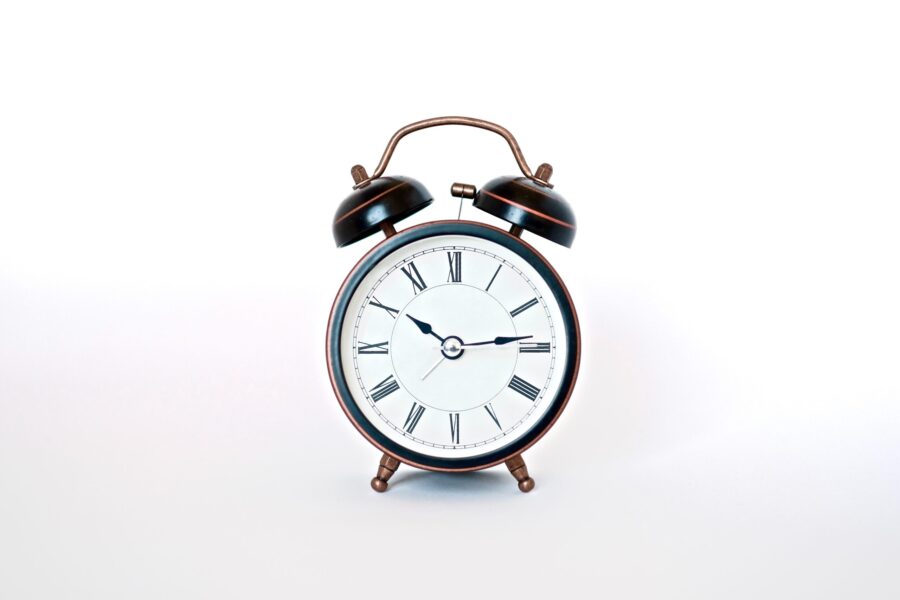How the Time Change Impacts Your Brain
It’s early November, which means it’s time to “fall back.” When daylight saving time (DST) came to an end on Sunday, November 5, most of us in America turned our clocks backward one hour. While the extra hour of sleep was welcome news to many, the twice-a-year disruptions that accompany the time change affect our mental health, Healthline explains. Changing the clocks impacts more than sleep, influencing our mood, alertness, and appetite, as well.
Our internal clock is tied to sunlight
Our body clock is tied to sunlight, in part because of the physiology of the brain.
Dr. Sara Benjamin, a clinical associate with Johns Hopkins School of Medicine, Department of Neurology and a part-time instructor in neurology, explained that in human beings “the strongest time signal is light. The system that coordinates our sleep/wake rhythm is the suprachiasmatic nucleus which is in the anterior hypothalamus which is directly above the optic chiasm.”
Cells in your retina send light input to the suprachiasmatic nucleus, which then sends signals to other parts of your brain “to regulate the timing of different body systems, including when different hormones are released, when we want to eat, and when to sleep or be awake. Light is one factor that influences our internal clocks; there is also a genetic factor that influences if we tend to be ‘night owls’ or ‘larks.’”
We live in a 24-hour rhythm of alternating light and dark cycles. The suprachiasmatic nucleus acts like a pacemaker that regulates circadian rhythms in the brain, said Dr. Nancy Foldvary-Schaefer, DO, MS, Director of the Sleep Disorders Center in Cleveland Clinic’s Neurological Institute. According to the article, “Light stimulates wakefulness and dark stimulates sleep pathways and the release of melatonin,” a naturally occurring hormone in the body that promotes sleep.
How does the change in seasons impact our brains?
Seasonal change affects both your mental and physical health.
“Seasons bring changes in light and temperature that affect activity levels and mood,” said Foldvary-Schaefer. “In the realm of sleep and brain function, shorter, darker and colder days tend to bring more sadness and can worsen depression.”
Physically, the lack of sunlight that comes with shorter winter days and more indoor activities can lead to a vitamin D deficiency, which affects our immunity, Foldvary-Schaefer explained. In addition to immune health, circadian misalignment can affect sleep, cognition, mood, metabolism, cardiac function, and muscle strength.
The time change affects everyone differently
Each time we change the clocks, some people feel better and some feel worse.
“Everyone has an individual sleep need and circadian predilection (normal phase vs. advanced – larks, vs. delayed – night owls),” explained Foldvary-Schaefer. “Both factors as well as the state of a person’s sleep health will affect how we react to time changes.”
Nearly 50% of Americans are chronically sleep-deprived, which makes the time change in the spring – where we lose an hour of sleep – the most difficult. Studies have shown that car accidents increase the day after daylight saving time begins.
“Most people adapt better to the ‘fall back’ to standard time than they do to daylight savings time, although they like having more daylight in the evening for evening activities,” said Benjamin. “They get an extra hour of sleep with this time change and there is lighter in the morning which is helpful for people to be more alert in the morning.”
Even so, sleep and mood can be disrupted. When it gets dark so early, some people feel less inclined to go back out after work and socialize with others, and the lack of social connection can impact mood, Benjamin added.
Helping your body adjust to the fall time change
In the winter when days are shorter, some people leave for work or school in the dark and come home in the dark. If that is the case with you, getting as much exposure to natural light during the daytime is key – sitting near a window at lunch or going outside for a short walk when possible can boost your mood, said Benjamin.
For more on how the time change affects your brain and your body, read the full article here.
Harvard Health offers suggestions on how to maintain your mental health in the long winter months.
Photo by insung yoon on Unsplash



